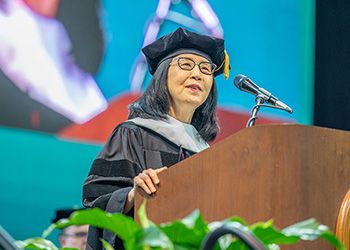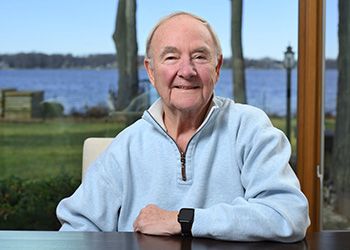$10.4M Gates Foundation grant bolsters African agriculture
February 23, 2010


The Bill and Melinda Gates Foundation has selected Michigan State for a $10.4 million grant to connect African biosafety regulators with advances in technology—an initiative aimed at reducing poverty and hunger through sustainable food production.
MSU is working in collaboration with the New Partnership for Africa’s Development (NEPAD)—a socioeconomic development program of the African Union—to provide African regulators with the most current science-based information to improve agricultural practices. NEPAD works to stimulate Africa’s development by filling gaps in agriculture, health, education, infrastructure, science and technology.
“Michigan State University has a long-standing tradition of working with countries in Africa,” said MSU President Lou Anna K. Simon. “This initiative fits very well with MSU’s mission in terms of building two-way partnerships for creating an enabling environment for science and technology to flourish.”
The project builds upon a 2008 Gates Foundation grant MSU and NEPAD received to establish the African Biosafety Network of Expertise (ABNE) that is bringing expertise and resources to bear on issues facing African farmers such as costs, environmental safety and human health safety.
Ibrahim Assane Mayaki, chief executive officer of NEPAD, noted that biotechnology can contribute immensely to African development particularly as NEPAD works to promote innovation while safeguarding human health and the environment. “The partnership with MSU will build the necessary capacity in biosafety and biotechnology in Africa,” he said.
The MSU/NEPAD grant is part of the Gates Foundation’s Agricultural Development initiative, which is working with a wide range of partners to provide millions of small farmers in the developing world with tools and opportunities to boost their yields, increase their incomes, and build better lives for themselves and their families. “Melinda and I believe that helping the poorest small-holder farmers grow more and get it to market is the world’s single most powerful lever for reducing hunger and poverty,” said Bill Gates, CEO.
For more information on MSU’s work in Africa and in African-related academic scholarship, see the special report “MSU and Africa: A half century of collaboration” at http://special.news.msu.edu/africa.




